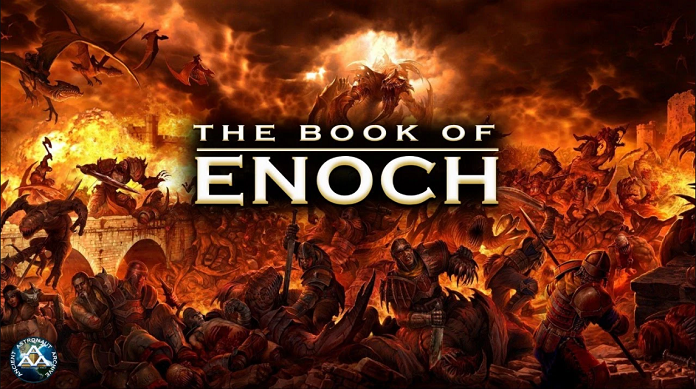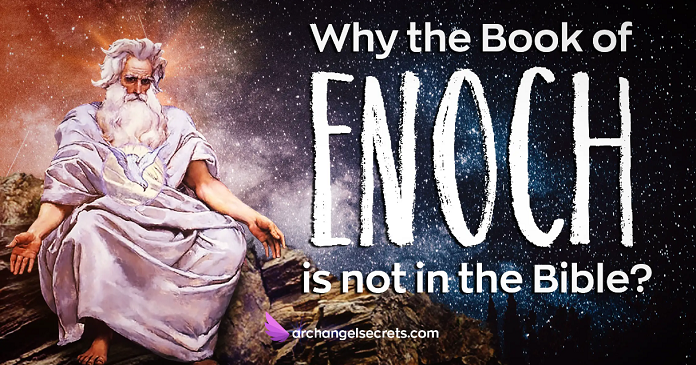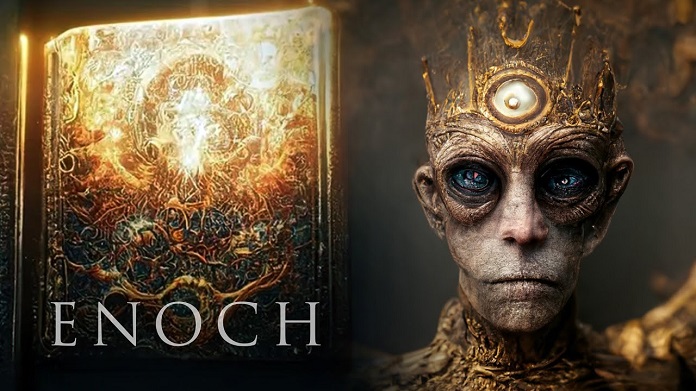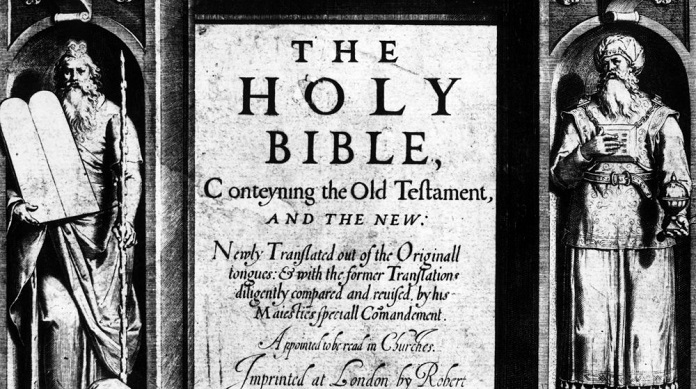The major reason Christians reject the Book of Enoch is because it is not a part of the biblical canon or a book in the bible. Despite the fact that the bible mentioned in John 12:25 that not everything that happened in the past was recorded in the Bible, many Christians still think that the content of the Book of Enoch is rather preposterous and full of controversies.
Beyond the above, the authenticity of its authorship has also been questioned because even though it looks like the book was written by the prophet Enoch from the bible, that is not true. It’s a collection from different unknown authors that are not recognized by authors of the books of the bible.
Why Stay Away From the Book of Enoch?
There are a few reasons why some people believe that one should stay away from the Book of Enoch. Firstly it contains some material that is considered to be controversial by some Christians, such as its discussion of the fall of the Watchers and the Nephilim. This material can be confusing and difficult to understand, and it can lead to false beliefs. This is why many are advised to stay away from it so that their belief in God will not be tainted.
Secondly, it is not included in the Bible as it is currently not canonized by most Christian denominations. This means that it is not considered to be inspired by God and is not considered to be authoritative. Also, it is not well-attested in the early Christian tradition because none of the New Testament authors mentioned it except for Jude. This lack of early attestation suggests that the Book of Enoch was not considered to be an important or authoritative text by the early Christians.
Ultimately, the decision of whether or not to read the Book of Enoch is a personal one. There is no right or wrong answer. However, it is important to be aware of the reasons why some people believe that one should stay away from the Book of Enoch before making a decision.
What is The Book of Enoch About
The Book of Enoch is an ancient Hebrew apocalyptic religious text ascribed by tradition to the patriarch Enoch, who was the great-grandfather of Noah. It contains unique material on the origins of demons and Nephilim, why some angels fell from heaven, an explanation of why the Genesis flood was morally necessary, and a prophetic exposition of the thousand-year reign of the Messiah.
The Book is not part of the biblical canon of either Judaism or Christianity, but it was considered scripture by some early Christians and is still referenced by some Ethiopian Christians today. It was written in Geʽez, an ancient Ethiopian language, and the only complete extant version is an Ethiopic translation of a previous Greek translation made in Palestine from the original Hebrew or Aramaic.
The Book of Enoch is divided into five sections:
- The Book of the Watchers (1 Enoch 1-36)
- The Book of Similitudes (1 Enoch 37-71)
- The Book of Astronomical Writings (1 Enoch 72-82)
- The Book of Dream Visions (1 Enoch 83-90)
- The Book of the Epistle of Enoch (1 Enoch 91-108)
It is a complex and challenging text, and its interpretation has been the subject of much debate. However, it is an important source of information on Jewish and Christian eschatology, angelology, and cosmology.
Why Is The Book of Enoch Not in The Bible?
The exclusion of the Book of Enoch from the Bible can be attributed to factors like the uncertainty surrounding the book’s authorship. While it claims to be written by Enoch, a figure from the early chapters of Genesis, scholars generally agree that it was composed by different authors over a period of time, likely spanning centuries. This uncertainty about authorship and the lack of a clear historical connection to the biblical Enoch raised doubts about its authenticity.
It also contains some material considered controversial by some Christians, such as its discussion of the fall of the Watchers, the Nephilim, cosmological and esoteric teachings, and descriptions of angels and supernatural events not found in other biblical texts.
Hence, it was not universally accepted by all Jewish or Christian communities. Different groups held varying views on its legitimacy and inspiration. Some early Christian writers, such as Tertullian and Origen, were familiar with the book and referenced it, but its inclusion in the biblical canon was never widely agreed upon.
Very important was the fact that it did not meet the criteria for canonization to the satisfaction of the authorities responsible for establishing the biblical canon. These include factors like apostolic authorship, acceptance by a broad range of communities, and consistency with existing teachings.
Is it a Sin to Read The Book of Enoch?
Whether or not it is sinful to read the Book of Enoch is a matter of opinion. There is no clear consensus on this issue among Christians, and other religious groups have varying perspectives on non-canonical texts like it.
Some Christians believe that it is sinful to read it because it is not part of the biblical canon. They believe that only the books that are included in the Bible are inspired by God and are, therefore, authoritative. Other Christians believe that it is not sinful to read it. They believe that it is an important text that can provide us with insights into Jewish and Christian thought. They also believe that everyone should be free to study and discuss any text, even if it is not part of the biblical canon.
Ultimately, the decision of whether or not to read the Book of Enoch is a personal one. There is no right or wrong answer because the bible is not against acquiring knowledge. However, it is important to be aware of the different perspectives on this issue before deciding. If you are considering reading it, it is important to do so with caution and discernment. The book contains some material that is considered to be controversial by some Christians.
Is There a Movie For The Book of Enoch?
There is no one movie adaptation of the Book of Enoch. However, there are a few independent films that have been made based on the book. These films are not considered to be accurate representations of the book, rather, they are works of fiction that have been inspired by The Book of Enoch as well as the person of Enoch himself in the bible. The movies include:
- Enoch Movie (2023) is an Indian film that tells the story of Enoch, a man who is chosen by God to deliver a message to humanity.
- The Forbidden Book (1997) is a low-budget film that tells the story of a group of people discovering a copy of the Book of Enoch. The film is full of religious symbolism and conspiracy theories.
- House of Fallen (2008) is a Christian film that tells the story of a family who is haunted by the Nephilim, a race of giants mentioned in the Book of Enoch.
What is Wrong With The Book of Enoch?
Essentially, there is nothing wrong with The Book of Enoch. However, most Christian denominations view it as outside the realm of inspired Scripture. Also, because it is not considered part of the canonical Bible reading, it is generally not considered sinful, but its teachings are not considered authoritative for matters of faith and doctrine.
Moreover, even though it is not considered scripture in Judaism, some Jewish mystics and scholars throughout history have been familiar with the book and engaged with its ideas. As with Christianity, the permissibility of reading the book would depend on the individual’s religious beliefs and the purpose for reading it.
Finally, one big proof against the belief that something is wrong with the Book is that it was highly regarded in some early Jewish and Christian communities, and it influenced certain aspects of early Christian thought and mysticism. It is quoted or referenced in some later Jewish and Christian texts. Going by the above, it is clear to see that the idea of something being wrong with the book is a subject of more recent religious beliefs.
What Did Jesus Say About The Book of Enoch?
Jesus never mentioned the Book of Enoch because his teachings in the New Testament Gospels primarily focus on issues related to the Kingdom of God, morality, and faith. Taking it a bit further is the fact that the Book of Enoch was not written in Hebrew, the language that Jesus spoke.
The only mention of the Book of Enoch in the New Testament is in Jude 1:14-15, where Jude quotes a passage from the Book of Enoch that reads:
“Enoch, the seventh from Adam, prophesied about them: “See, the Lord is coming with thousands upon thousands of his holy ones to judge everyone and to convict all of them of all the ungodly acts they have committed in their ungodliness, and of all the defiant words ungodly sinners have spoken against him.”
This bears a rather close semblance in text and meaning to a passage found in the Book of Enoch, specifically in the section known as 1 Enoch 1:9, which says:
“And behold! He cometh with ten thousands of His holy ones to execute judgment upon all, and to destroy all the ungodly: And to convict all flesh of all the works of their ungodliness which they have ungodly committed, and of all the hard things which ungodly sinners have spoken against Him.”
However, it is not clear whether Jude is quoting the Book of Enoch directly or whether he is simply paraphrasing a common Jewish tradition. That notwithstanding, the reference has led to some debate and discussion among scholars and theologians about Jude’s familiarity with the Book of Enoch and the degree to which he considered it authoritative. However, it’s essential to understand that including this passage in the biblical canon does not necessarily imply that the entire Book of Enoch should be considered canonical.
Key Facts about the Book of Enoch
The Book is a fascinating and important text that has had a significant impact on Jewish and Christian thought. It is a complex and challenging text, but it is also a rewarding one to study. Here are facts to note about it:
- It is an ancient Hebrew apocalyptic religious text ascribed by tradition to the patriarch Enoch, who was the great-grandfather of Noah.
- The book was written during the Second Temple period (circa 300 BCE to 100 CE), a time of significant religious and cultural developments. It reflects the concerns and beliefs of this era.
- It tells the story of how some angels, called the Watchers, fell from heaven and had sexual relations with human women. This act of rebellion led to the birth of the Nephilim, a race of giants who were violent and destructive.
- It explains why the Genesis flood was necessary. The flood was a punishment for the sins of humanity, but it also served to cleanse the earth of the Nephilim.
- It predicts the coming of a Messiah who will defeat the forces of evil and establish a thousand-year reign of peace.
- It was written in Geʽez, an ancient Ethiopian language, and the only complete extant version is an Ethiopian translation of a previous Greek translation made in Palestine from the original Hebrew or Aramaic.
FAQs About The Book of Enoch
When Was The Book of Enoch Written?
The exact date of its writing is uncertain because it is a collection of writings that likely span several centuries. Its composition is generally believed to have occurred during the Second Temple period, which is estimated to be from around the 3rd century BCE to the 1st century CE.
Where is The Book of Enoch Mentioned in The Bible?
The only mention of the Book of Enoch in the New Testament is in Jude 1:14-15, where Jude quotes a passage from the Book of Enoch that reads:
“Enoch, the seventh from Adam, prophesied about them: “See, the Lord is coming with thousands upon thousands of his holy ones to judge everyone and to convict all of them of all the ungodly acts they have committed in their ungodliness, and of all the defiant words ungodly sinners have spoken against him.”
Is The Book of Enoch in The Catholic Bible?
No, it is not included in the Catholic Bible as part of the canonical scriptures. The Catholic Bible contains the Old Testament, which consists of books recognized by the Catholic Church as inspired and authoritative. The Book of Enoch is not considered part of the Catholic Old Testament canon.
When Was The Book of Enoch Removed From The Bible?
It was never part of the biblical canon of either Judaism or Christianity. It was considered scripture by some early Christians and is still referenced by some Ethiopian Christians today. However, it was not included in the Hebrew Bible or the Christian Old Testament.




